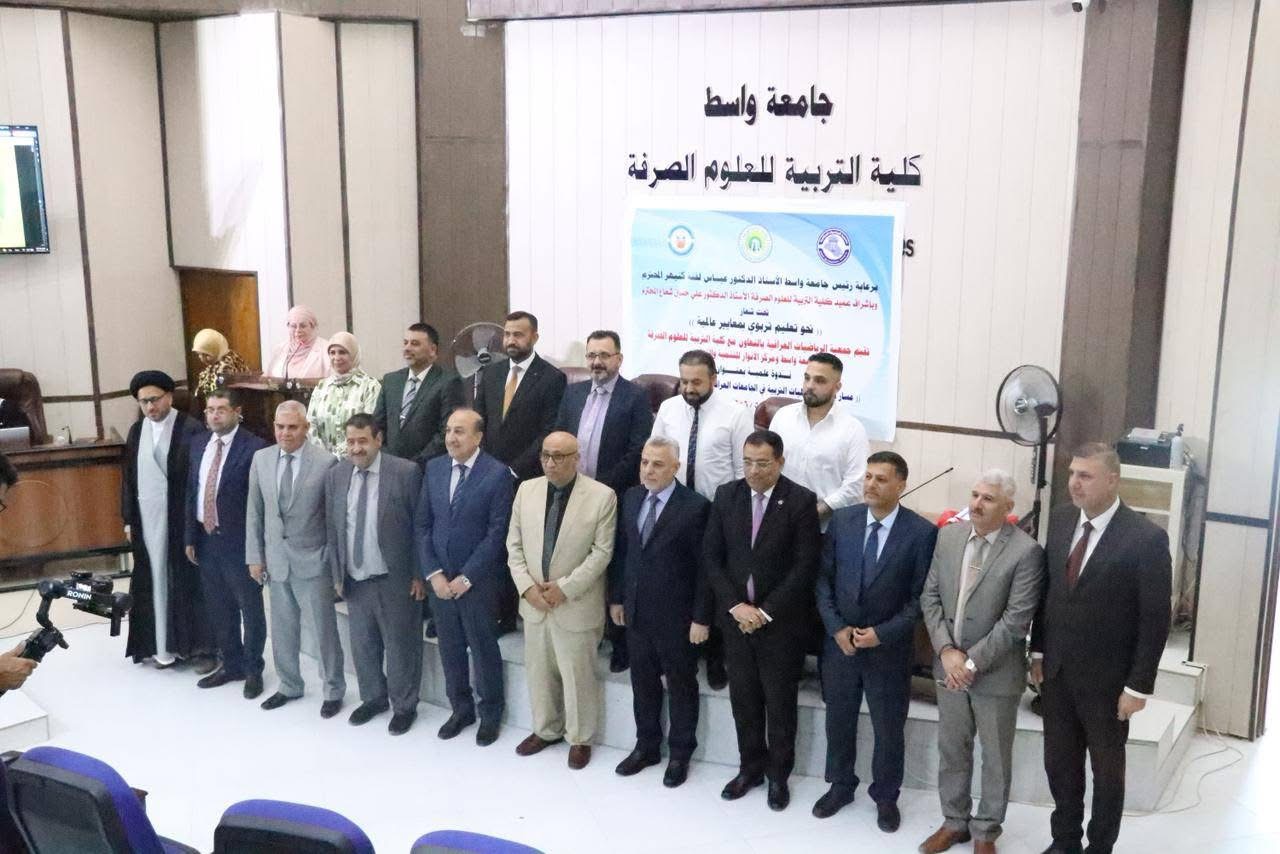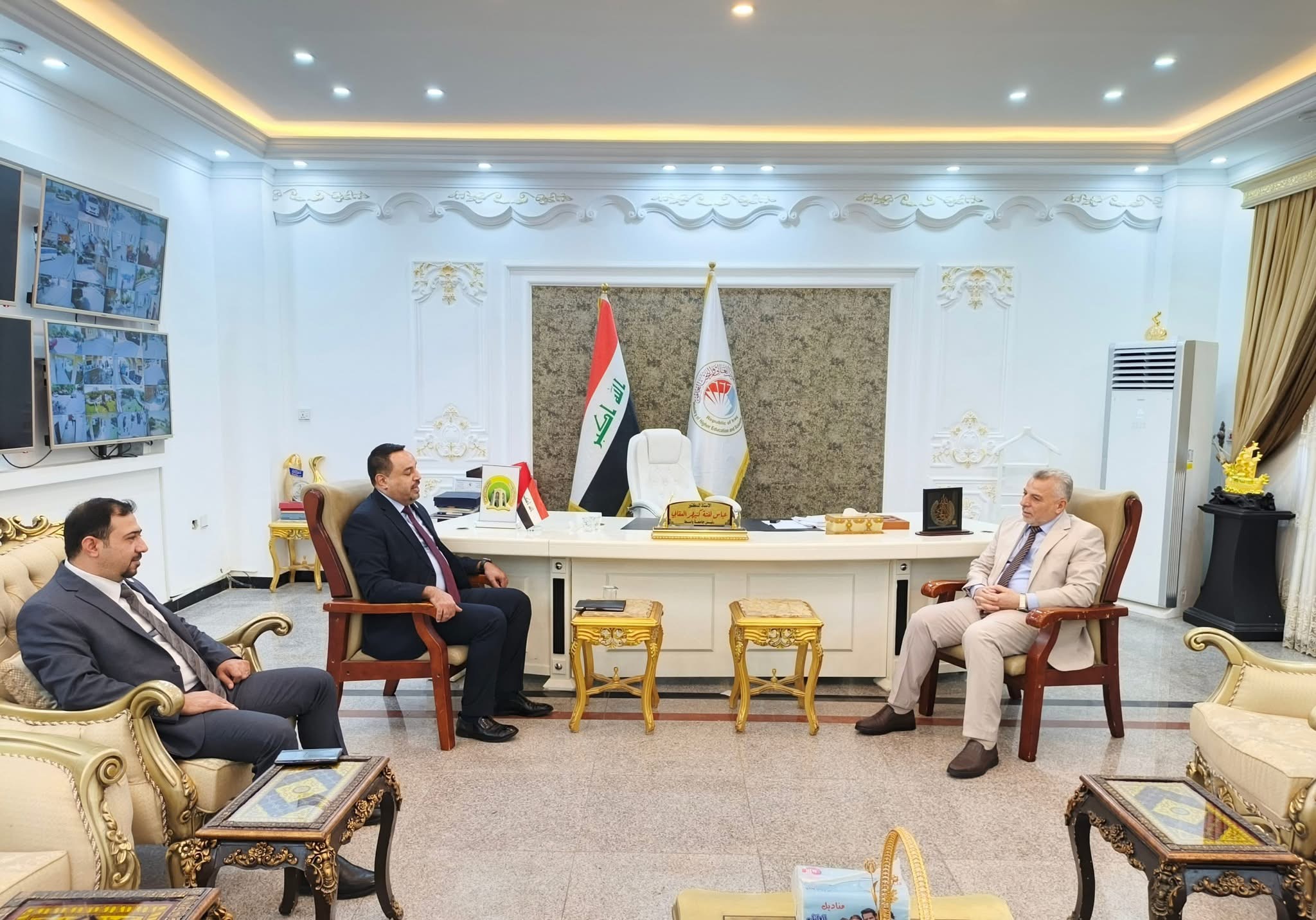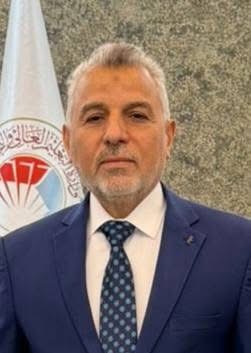













Wasit University Hosts Scientific Symposium on the Bologna Process in Colleges of Education: Realities and Challenges
The College of Education for Pure Sciences at Wasit University, in collaboration with the Iraqi Mathematical Society and Al-Anwar Center for Development and Education, organized a scientific symposium titled “The Bologna Process in Colleges of Education: Realities and Challenges,” under the theme: “Towards Globally Standardized Educational Practices.” The event witnessed a wide academic presence and active scholarly dialogue.
The symposium was inaugurated by the President of Wasit University, Prof. Dr. Abbas Lafta Al-Uqabi, who emphasized in his opening remarks that Iraq’s higher education sector is undergoing intensive efforts aimed at modernization, innovation, and internationalization. He noted that the Bologna Process represents a bold European framework that seeks to harmonize higher education systems across countries and facilitate mutual recognition of academic degrees.
Dean of the College, Prof. Dr. Ali Hussein Shua’a Al-Taie, highlighted that the College of Education for Pure Sciences, although newly established, has made confident strides in complying with directives issued by the Ministry of Higher Education and Scientific Research. He further stated that this symposium serves to familiarize faculty members with the structure, evaluation methods, quality assurance mechanisms, and foundational principles of the Bologna Process, as part of the college’s transition to this framework.
President of the Iraqi Mathematical Society, Prof. Dr. Nouri Farhan Al-Mayyahi, pointed out that the Society is actively contributing to educational reform, recognizing the importance of updating pedagogical programs and balancing academic quality with national identity. He praised the symposium as a valuable platform for scholarly dialogue among researchers, educators, and decision-makers.
The symposium’s sessions addressed five key thematic axes:
- The theoretical and historical background of the Bologna Process.
- The current status of Colleges of Education in Iraqi universities.
- The gap between Iraq’s current educational system and the requirements of the Bologna framework.
- Institutional, pedagogical, and logistical challenges impeding implementation.
- Developmental insights and strategic recommendations for aligning teacher education programs with Bologna standards.
The symposium concluded with a strong endorsement for comprehensive reform of academic programs and curricula in Colleges of Education to align them with international benchmarks. Key challenges were identified, including weak technological infrastructure, limited financial resources, lack of supportive policies, and insufficient pedagogical and technical preparation of faculty members to adapt to the new European model.
Key recommendations included:
_The formation of a specialized ministerial committee composed of experts in education and higher education to study the feasibility of implementing the Bologna Process.
_Launching a pilot project in selected model Colleges of Education for phased and well-studied application of Bologna elements.
_Revisiting and updating current curricula to reflect competency-based education and learning outcomes.
_Reforming student assessment systems to align with European standards.
_Conducting training and professional development programs for academic and administrative staff on the Bologna system and its educational philosophy.
_Strengthening international academic partnerships with European universities to benefit from their experience in implementing this framework.
This symposium represents a significant step in Wasit University’s ongoing commitment to quality assurance, academic reform, and alignment with global educational standards.








